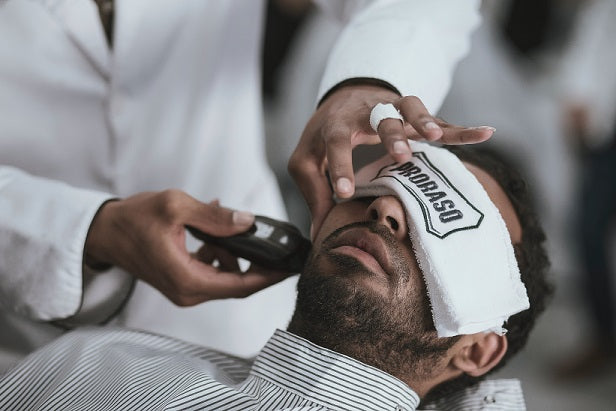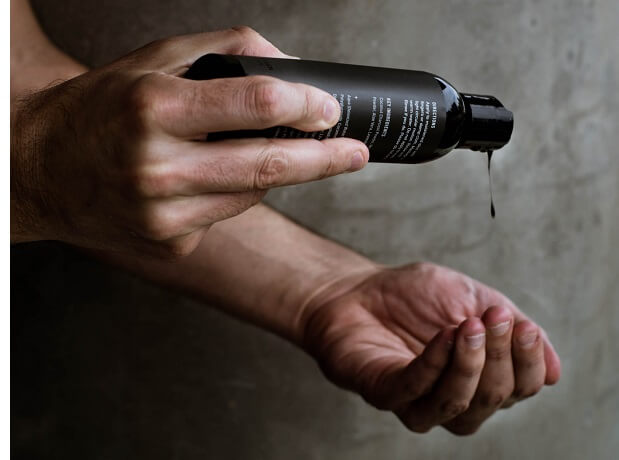Say Goodbye to Dandruff with These Natural Remedies for Men
Understanding Dandruff

Dandruff is a common scalp condition marked by the flaking of skin. It's often accompanied by itchiness and can be quite frustrating. Several factors can lead to dandruff, including dry skin, sensitivity to certain hair products, and skin conditions like seborrheic dermatitis. Additionally, not shampooing enough can lead to oil buildup and dead skin cells, which contribute to the flakes. Weather changes, particularly during winter, can also dry out your scalp, worsening dandruff.
Another contributing factor can be a yeast-like fungus called Malassezia, which exists naturally on the scalp but can grow out of control. When this happens, it can cause more skin cells to grow and then shed, resulting in visible flakes. Hormonal changes and stress can also play a role, affecting the scalp's health and exacerbating dandruff.
Understanding these various triggers is crucial for effective management. Identifying the underlying cause can help you choose the most suitable treatment, whether it involves adjusting your hair care routine, trying natural remedies, or making lifestyle changes. For some, simply switching to a different shampoo or using it more frequently can make a significant difference. For others, targeted treatments like those mentioned in this guide may be necessary to keep dandruff under control. By recognizing what contributes to dandruff, you can take proactive steps to address it.
Tea Tree Oil Benefits

Tea tree oil stands out for its strong antimicrobial properties, making it a top natural choice for tackling dandruff. It effectively combats the fungus responsible for scalp flaking. To apply tea tree oil, blend a few drops with a carrier oil like coconut oil and massage the mixture into your scalp. Leave it on for about 15 minutes before rinsing thoroughly. This routine can help keep your scalp healthy and reduce flakiness.
Apple Cider Vinegar Rinse3

Apple cider vinegar is another potent remedy due to its ability to balance scalp pH levels, which can prevent the growth of yeast and bacteria. To apply, mix equal parts of apple cider vinegar and water. After shampooing, pour the mixture over your scalp and let it sit for a few minutes before rinsing thoroughly. The acetic acid in apple cider vinegar helps to exfoliate the scalp gently, removing dead skin cells that contribute to dandruff.
Using apple cider vinegar also helps to unclog hair follicles and dissolve buildup from hair products, which can otherwise irritate the scalp. By removing these impurities, you allow your scalp to breathe and stay healthy. Its anti-inflammatory properties can soothe irritation and reduce redness, making it especially beneficial for those with sensitive skin.
Regular application of an apple cider vinegar rinse can also add a natural shine to your hair, making it look healthier overall. For those who are concerned about the strong smell, rest assured that it usually dissipates once your hair dries.
For best results, try incorporating this rinse into your hair care routine once or twice a week. Over time, you may notice a significant reduction in dandruff and an improvement in scalp health. Remember, consistency is key when using natural remedies, so make sure to stick with it to see the best outcomes.
Aloe Vera for Scalp Health

Aloe vera has been cherished for its skin-soothing properties and is excellent for calming an irritated scalp. Its natural enzymes can help remove dead skin cells and promote a healthier scalp environment. To harness the benefits of aloe vera, extract the gel from a fresh leaf and apply it generously to your scalp. Make sure to cover all areas where you experience flakiness or itching. Allow the gel to sit for about 20 minutes before rinsing it out with a mild shampoo. This process can be repeated a few times a week for optimal results.
In addition to its soothing qualities, aloe vera is rich in vitamins and minerals that nourish the scalp, including vitamins A, C, and E, which are known for their antioxidant properties. These nutrients help repair and protect the scalp from further damage. Aloe vera also has anti-inflammatory properties that can reduce redness and swelling, making it particularly beneficial for those with sensitive skin or inflammatory scalp conditions.
Aloe vera's moisturizing effect helps keep the scalp hydrated, reducing dryness and the likelihood of dandruff. Unlike some other treatments, it does this without leaving a greasy residue, making it a lightweight option for daily use. The gel can be stored in the refrigerator for an added cooling effect during application, which can be especially soothing for irritated skin.
You can also combine aloe vera with other natural ingredients like tea tree oil or coconut oil for an enhanced treatment. Mixing a few drops of tea tree oil with aloe vera gel can provide an extra antimicrobial boost, while adding a bit of coconut oil can further enhance hydration. Experimenting with these combinations can help you find the most effective regimen for your scalp needs.
Coconut Oil Treatment

Coconut oil is a fantastic natural moisturizer that can help reduce dryness and flakiness on the scalp. Its fatty acids penetrate the hair shaft and provide hydration. To use coconut oil for dandruff, warm up a small amount and apply it to your scalp and hair. Let it sit for at least 30 minutes or overnight before washing it out with shampoo. This treatment not only moisturizes but also helps in managing dandruff effectively.
One of the unique benefits of coconut oil is its antimicrobial properties, which help combat the fungi and bacteria that can cause scalp issues. This makes it particularly effective for those who suffer from persistent dandruff. Moreover, coconut oil's anti-inflammatory effects can soothe irritated and inflamed areas of the scalp, offering relief from itching and redness.
Incorporating coconut oil into your routine is simple and can be customized based on your needs. For a deeper treatment, consider adding essential oils like lavender or peppermint, which can enhance the oil's soothing and antimicrobial properties. These additions can also provide a pleasant aroma, making your treatment experience more enjoyable.
If you prefer a lighter application, you can mix coconut oil with your regular conditioner. This allows you to benefit from its moisturizing properties without the need for a separate treatment session. Another approach is to use it as a pre-shampoo treatment, applying it to dry hair and scalp before showering to protect against the drying effects of shampoo.
By regularly using coconut oil, you can maintain a well-hydrated and healthy scalp, reducing the frequency and severity of dandruff episodes.
Diet and Lifestyle Changes

Your diet and lifestyle play a crucial role in maintaining a healthy scalp and managing dandruff. Incorporating foods rich in zinc, vitamin B, and omega-3 fatty acids into your meals can significantly improve scalp health. Zinc helps control the production of oil on the scalp, reducing the likelihood of dandruff. Foods like pumpkin seeds, spinach, and lentils are excellent sources of zinc. Vitamin B, particularly B6 and B12, is essential for overall skin health. Including eggs, whole grains, and nuts in your diet can provide the necessary B vitamins. Omega-3 fatty acids, found in fish like salmon and mackerel, as well as in flaxseeds and walnuts, help reduce inflammation and keep the scalp moisturized.
Staying hydrated is also vital for maintaining scalp health. Drinking plenty of water helps keep your skin, including your scalp, hydrated and less prone to flaking.
Stress management is another important aspect of controlling dandruff. High-stress levels can exacerbate scalp conditions, making dandruff more difficult to manage. Incorporating stress-reducing activities like yoga, meditation, or even regular exercise can have a positive impact on your scalp health. These activities help reduce cortisol levels, which can, in turn, decrease the occurrence of dandruff.
Sleep quality also affects your skin and scalp. Ensure you get adequate rest each night, as poor sleep can contribute to hormonal imbalances and stress, both of which can worsen dandruff.
By focusing on these dietary and lifestyle factors, you can take a holistic approach to managing dandruff, addressing the issue from the inside out.
When to Seek Professional Help
If your dandruff does not improve after using natural remedies and making dietary or lifestyle adjustments, consulting a dermatologist may be necessary. Persistent dandruff, accompanied by severe itching, redness, or swelling, can indicate more serious scalp conditions that require medical intervention. Dermatologists can offer a variety of treatments, including medicated shampoos and topical solutions specifically formulated for more stubborn cases of dandruff. They may also perform tests to rule out other conditions, such as psoriasis or eczema, which can mimic dandruff symptoms. Early intervention can prevent the condition from worsening and provide relief from uncomfortable symptoms. Additionally, dermatologists can offer personalized advice tailored to your specific scalp needs, ensuring you get the most effective treatment plan.



